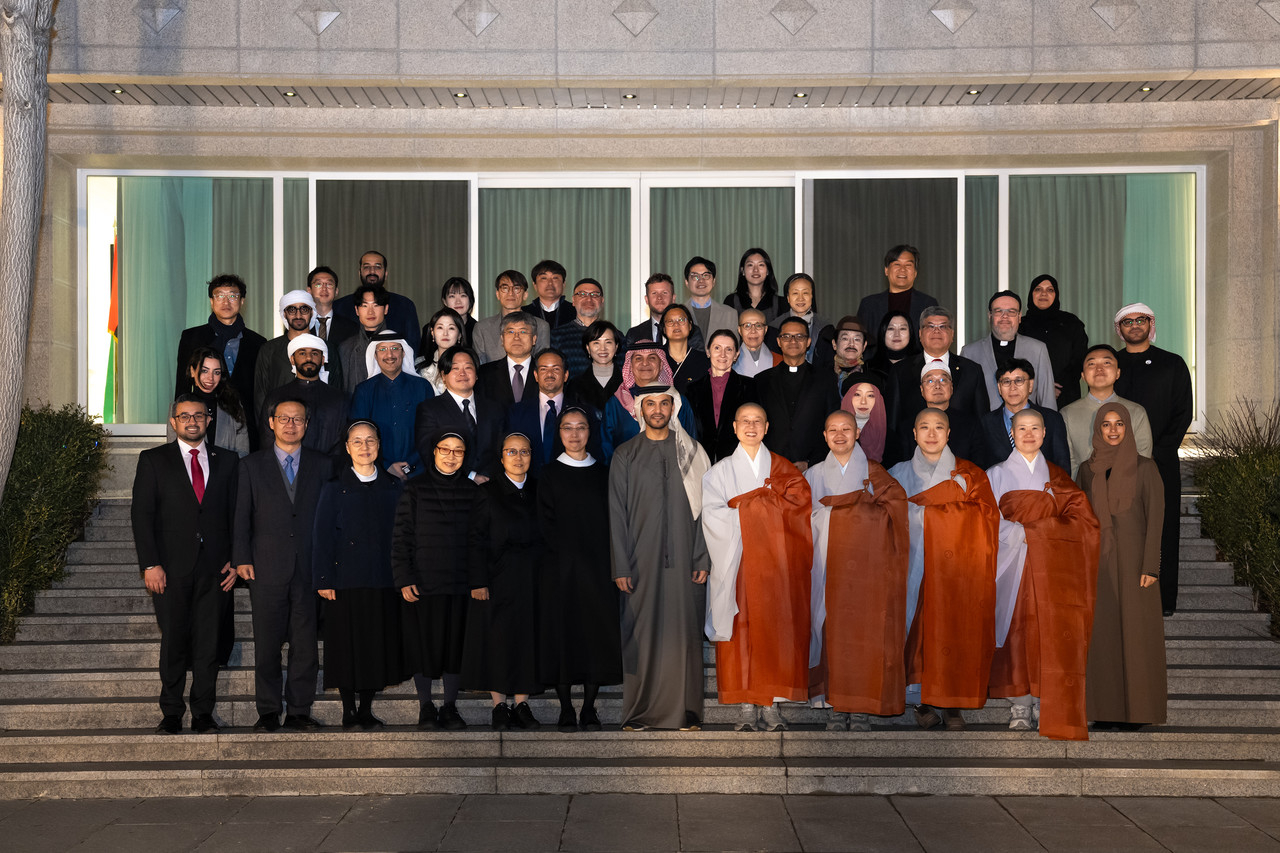The United Arab Emirates (UAE) has once again made headlines for promoting global peace and harmony by hosting a series of powerful interfaith dialogues. These gatherings brought together religious leaders, scholars, and peace advocates from around the world to discuss the importance of mutual respect, cooperation, and spiritual unity.
This initiative strengthens the UAE’s global image as a hub for tolerance and peaceful coexistence. The country, known for its diverse expatriate population, has taken consistent steps toward building a society where people of different faiths can live together in harmony.
Read more about UAE’s role in promoting tolerance.
The Purpose Behind Interfaith Dialogues in the UAE

The primary goal of the interfaith dialogues hosted in the UAE is to foster understanding and reduce religious conflict. These sessions allow participants to openly discuss spiritual and ethical values, religious beliefs, and the social role of faith in modern times.
The dialogues emphasize these key themes:
- Peacebuilding across religions
- Respect for cultural and religious diversity
- Combating extremism through education and dialogue
- Encouraging youth involvement in peace efforts
Such dialogues have received widespread appreciation from international observers, religious institutions, and diplomatic missions.
Events Hosted in Abu Dhabi and Dubai
The events were held in key cultural centers across the UAE, including Abu Dhabi’s Abrahamic Family House and Dubai Expo City. These sessions witnessed the participation of representatives from Christianity, Islam, Judaism, Buddhism, Hinduism, Sikhism, and more.
One of the most notable moments occurred during the Global Conference of Human Fraternity in Abu Dhabi, where leaders discussed common moral principles shared by all religions.
To learn more about the Abrahamic Family House, visit official site.
Highlights from the Dialogues
Focus on Youth Engagement
Speakers stressed the importance of engaging youth in interfaith work. Young people from different cultural backgrounds shared personal stories of tolerance, cooperation, and unity. This interaction not only empowered them but also highlighted the need for grassroots dialogue.
Women’s Voices in Faith
Several female religious scholars and peacebuilders took center stage to talk about the role of women in shaping peaceful societies. This focus encouraged more inclusive participation in faith-based discussions and recognized women’s efforts in community building.
Combating Hate Speech
Participants discussed how social media and digital platforms can be both harmful and helpful. They explored ways to counter hate speech online by promoting positive messages of peace and understanding.
UAE’s National Policy of Tolerance
The UAE’s National Tolerance Program was highlighted during the dialogues. This program includes school-based education, public campaigns, and partnerships with religious institutions.
The Minister of Tolerance and Coexistence, Sheikh Nahyan bin Mubarak Al Nahyan, emphasized the importance of education in building a future rooted in respect and understanding.
Explore the UAE’s Tolerance Initiatives.
The Abrahamic Family House: A Symbol of Unity

A recurring reference during the dialogues was the Abrahamic Family House, a unique interfaith complex that houses a mosque, a church, and a synagogue under one roof. This structure represents the shared values of the Abrahamic faiths and is a symbol of peaceful coexistence.
The center offers guided tours, educational programs, and open discussions to help people understand different religious practices.
Find more at Abrahamic Family House Events.
International Praise and Recognition
World leaders, including Pope Francis, the Grand Imam of Al-Azhar, and several international peace organizations, have praised the UAE for leading interfaith efforts. The dialogues are seen as a blueprint for peaceful cohabitation in multicultural societies.
Global news outlets and human rights organizations noted that the UAE is making real, impactful strides in interreligious harmony and is a model for peaceful global diplomacy.
Benefits of Interfaith Dialogues
The interfaith events have helped build bridges between communities. Key benefits include:
- Greater empathy among different religious groups
- Reduced stereotypes and misunderstandings
- Increased community cooperation in social programs
- Improved mental well-being through shared values and faith-based support
The UAE continues to invest in educational programs, social campaigns, and public infrastructure that promote interfaith dialogue at all levels of society.
What’s Next for Interfaith Dialogues in the UAE
The UAE has announced plans to host annual interfaith summits, expand youth-led interfaith initiatives, and work closely with UN-based peace programs. This includes establishing peace education curriculum in schools and promoting interfaith tourism where visitors can explore places of worship from multiple religions.
These next steps further strengthen the UAE’s commitment to a peaceful and inclusive world.
Final Thoughts
The UAE’s interfaith dialogues are more than just symbolic gestures. They are powerful actions that inspire change and promote understanding in a deeply divided world. In a time when many societies face rising religious tension, the UAE stands out as a beacon of hope and harmony.
By continuing to host these dialogues, the UAE not only fosters unity within its borders but also contributes to global peace efforts. It proves that faith can be a bridge, not a barrier.
Also Read – Makkah’s Smart Waste Pilots Could Transform Holy City Forever



